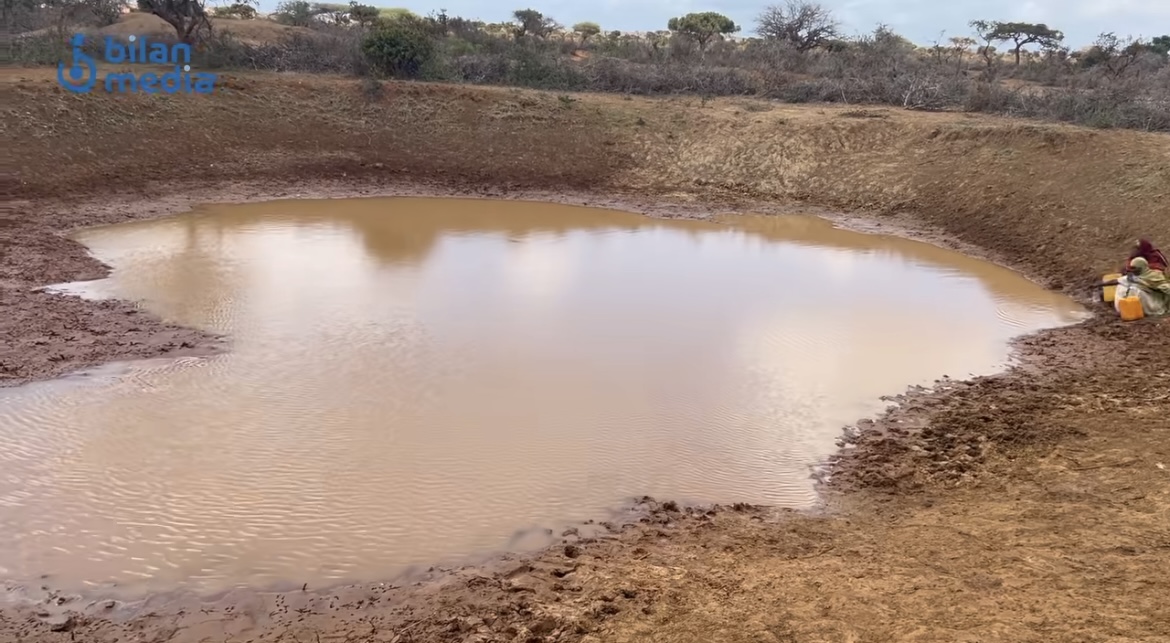Women in Bahnano village, western Kismayo, are struggling to access clean water, relying solely on the river that is gradually drying up.

Under the scorching sun of western Kismayo, 35-year-old Cadeey Cali, who is pregnant, begins her first journey of the day to fetch water.
She carries a 20-liter plastic container, making two trips daily to secure enough water for her children. During her journey, there is no tree or shade where she can rest.
Out in the open, without any protective cover, she fetches water not only for herself but also for other women living in Baxnaano village and nearby areas. The villagers, their livestock, and other local animals all rely on the same water source.
“I carry the water myself; no one else can do it for me. I have very little hope; the ten liters I manage to carry barely make a difference, I often spill some along the way,” said Cadeey Cali, showing signs of exhaustion.
“These waters are not clean or safe to drink, but we have no alternative, so we drink it anyway,” she added.
The water shortage affects not only the women of Baxnaano but also people living in nearby villages like Shinbireey.
“When I ran out of water at Hanoogane, I went to a man who had some. I told him, ‘My children are thirsty, please give me water.’ He refused, but someone else helped me. In the morning, I left my children at home and returned in the afternoon—I had to search three times to get water,” said Safiyo Muxumed, as Bilan documented the water crisis in her community.
During the dry season, as the river continues to shrink, the nomadic families of Baxnaano travel long distances to find water. These journeys are dangerous.
“When nomadic people go to fetch water, their carts are at risk from landmines along the paths,” said Asli Aadan, deputy chairperson of the Baxnaano IDP community.
We asked the village chief of Baxnaano whether there have been efforts to provide access to clean drinking water.
Baxnaano, which has hosted displaced families for the past four years, with 280 households living there and three nearby villages, does not have a well. Cumar Ismaaciil Nuur, Coordinator for Lower Jubba region at the Ministry of Energy and Water Resources in Jubaland, explained why these villages have been overlooked:
“The land in the villages you visited in western Kismayo is difficult; extensive surveys have been conducted, and it is very challenging to find a source of clean water. It is also hard for nomadic people to relocate from their land,” he said.
Efforts by the people of Baxnaano to dig a well have failed because rocks have blocked the site. The well would need to be demolished and rebuilt to provide water. They have requested assistance to cover the costs.
Written by Sadia Nour.
